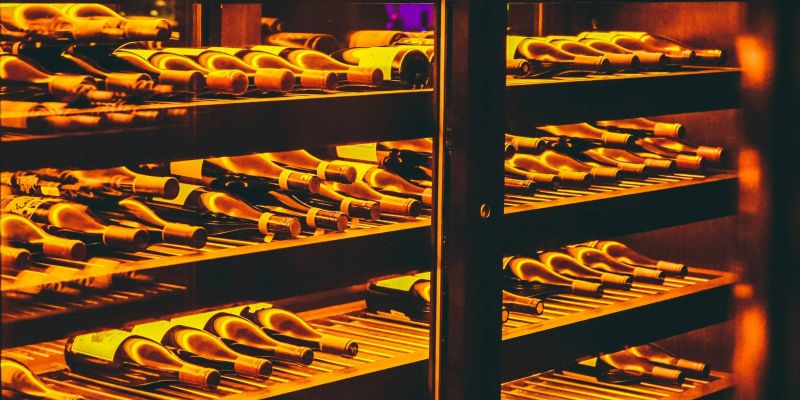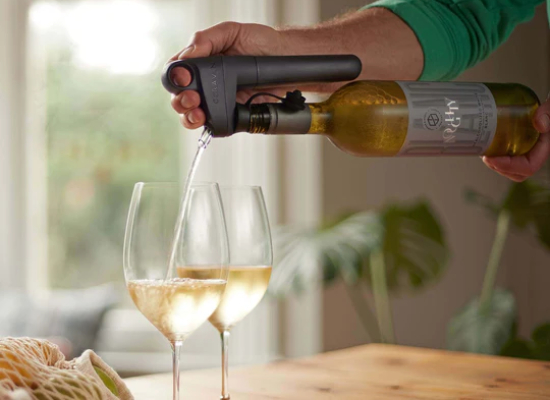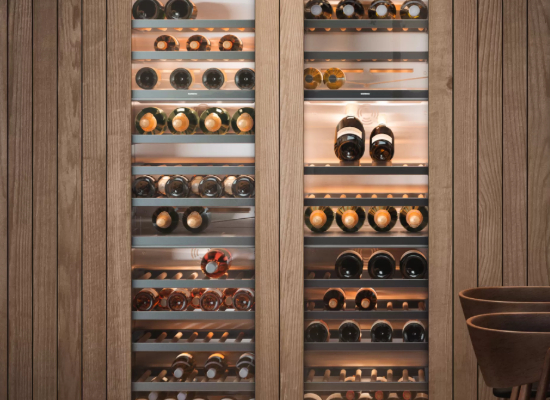Educating Sommeliers Worldwide.
By Beverage Trade Network

The wine industry is embracing advanced technologies that are transforming how wine is stored, aged, and preserved. From innovations that ensure optimal environmental conditions to systems that safeguard against counterfeiting, these tools are redefining standards for quality and authenticity. For sommeliers, retailers, and wine producers, adopting these technologies means not only protecting valuable collections but also enhancing operational efficiency and customer satisfaction. This article explores the cutting-edge technologies revolutionizing wine storage, including smart wine cellars, blockchain for provenance, and ultraviolet protection coatings, each offering a unique solution for preserving the integrity of wine. Sommelier Business delves into these innovations in detail.
Smart wine cellars integrate cutting-edge technology, offering wine professionals an advanced solution for optimal wine storage. These cellars use IoT (Internet of Things) to connect various devices, such as sensors and climate controllers, which work together to monitor and adjust temperature and humidity levels. This real-time data can be accessed remotely, providing convenience and precision. Additionally, AI (Artificial Intelligence) is employed to analyze storage conditions and make proactive adjustments, ensuring the wine is stored under ideal conditions. With predictive insights and automated monitoring, smart wine cellars elevate wine preservation, protect valuable collections, and streamline inventory management for sommeliers and other professionals.
Also read: How to Create a Diverse and Dynamic Wine List?
Wine preservation systems are essential for ensuring that opened bottles of wine maintain their quality over time. These systems work by replacing the oxygen in the bottle with inert gases like argon, which prevents oxidation and preserves the wine's flavor, aroma, and texture. Some systems also allow wine to be poured without removing the cork, extending the shelf life of the bottle. These innovations are particularly useful in restaurants and wine bars, where wines are sold by the glass. By providing optimal preservation, these systems reduce waste, enhance customer experience, and maintain the integrity of the wine for longer periods. Additionally, they offer a cost-effective solution by minimizing wine spoilage and maximizing the value of each bottle.

Image: Coravin Pivot Wine preservation system (source)
Climate-controlled storage units are essential for preserving wine in optimal conditions, ensuring that temperature fluctuations don’t impact quality. These units provide consistent cooling, maintaining a steady temperature range that prevents spoilage and allows wines to age gracefully. Whether for personal collections or professional use, these storage solutions typically come with compressors or thermoelectric systems. Compressors are ideal for larger storage needs, offering greater temperature control, while thermoelectric systems are quieter and more energy-efficient, suited for smaller spaces. For wine professionals, these units protect valuable collections, extend shelf life, and ensure wines are served at their peak, maintaining flavor and integrity.
Blockchain for wine provenance is revolutionizing the industry by ensuring transparency and authenticity across the entire supply chain. By utilizing blockchain technology, wine’s journey—from vineyard to consumer—can be traced and verified, creating an immutable record that eliminates the risks of fraud and counterfeiting. This level of traceability is invaluable for collectors, buyers, and producers, providing them with proof of origin, quality, and storage conditions. Blockchain also allows for real-time tracking of wine, improving quality control and transparency, and enhancing trust among consumers. As a result, it helps safeguard the integrity of high-value wines in both storage and transactions.

Image: Gaggenau Vario wine climate cabinets 400 series (source)
Ultraviolet (UV) protection coatings are a key feature in modern wine storage units, safeguarding wines from the detrimental effects of UV light. UV exposure can cause chemical reactions in wine, leading to premature aging and the degradation of organic compounds that impact flavor and aroma. Wine fridges equipped with UV-protective coatings or tinted glass doors help filter out harmful UV rays, preserving the wine's integrity and preventing off-flavors. Additionally, LED lighting in these units minimizes UV exposure compared to traditional fluorescent lighting. With UV protection, wine storage is optimized for long-term preservation, maintaining both quality and taste.
Temperature-responsive labels are innovative tools used to monitor and indicate whether a wine has been stored at an optimal temperature. These labels change color when the wine reaches a specific temperature threshold, providing a visual cue that can help ensure wine quality is maintained during transportation and storage. For wine professionals, these labels offer an easy, non-invasive way to track whether wines have been exposed to temperature fluctuations that could affect their aging process. By integrating these labels into wine storage and logistics, they help safeguard wine’s integrity and ensure it remains in ideal conditions for consumption.
Also read: Are Augmented and Virtual Reality Tools Essential For Wine Brands?
Smart labeling systems incorporate technologies like RFID tags, QR codes, and NFC chips to enhance the way wine is tracked and managed throughout its lifecycle. These labels provide more than just basic information; they enable real-time tracking of storage conditions, provenance, and wine’s journey from vineyard to bottle. For wine professionals, smart labels offer a seamless way to monitor temperature, humidity, and location, helping ensure that wines are stored properly and remain authentic. This technology adds an extra layer of transparency and traceability, which is essential for maintaining wine quality, preventing fraud, and providing consumers with detailed information.
[[relatedPurchasesItems-61]]
In a rapidly evolving wine industry, advanced technologies are not just enhancing storage practices but are shaping the future of wine preservation and traceability. From smart wine cellars and blockchain systems to climate-controlled units and UV protection, these innovations are redefining the standards for quality, authenticity, and efficiency. By adopting these solutions, wine professionals can safeguard their collections, improve customer experiences, and remain at the forefront of the industry. Together, these advancements illustrate how technology is revolutionizing the art and science of wine storage for years to come.
Header image sourced from Unsplash
Related Links
Wine Menu Created By ChatGPT and Its Thought Process
Mechanized Versus Hand Work in the Vineyard: Crafting Top-Quality Wine